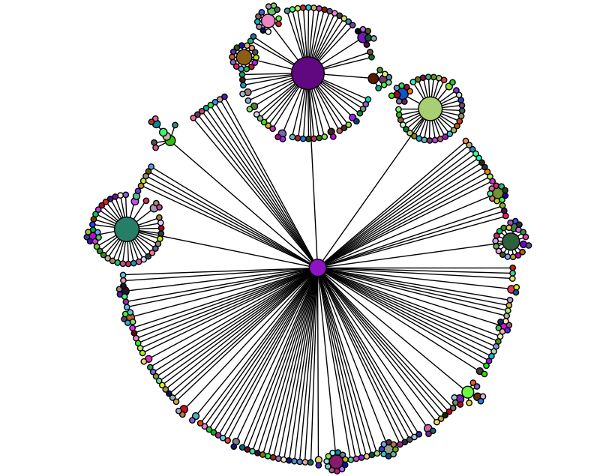UC Berkeley Researchers Mapping Proposition 30 Social Media


Researchers at UC Berkeley are testing a new method for tracking how people use social media in politics. Their first project plans to map Proposition 30 social media references onto graphs. They also have an innovative new discussion area they call an opinion space.
Users sign up on their new website, CA Prop 30 Awareness, by entering their email address. This creates a new page similar to the home page coded with a number unique to them. Users then use social media like Facebook and Twitter to discuss Proposition 30, using the unique page as the link. The website tracks click-through to the unique page and awards points.
Your influence value increases by one point for each person you invite, and by half a point for every person those people invite, and so on. We can then visualize these scores in a graph.
This sample graph displayed above shows how social media spreads from the social media user in the middle out to his circles and then to other circles. Users can view their own graphs at any time to see how their social media messages on Proposition 30 are spreading.
Proposition 30 will be on the California ballot in November. Billions in state funding for education as well as the increased possibility of a balanced budget depend upon it passing.
CA Prop 30 Awareness explains:
Everyone in California, from students to CEO's, should know about Proposition 30 on the November 2012 Ballot. If passed, Prop 30 will increase sales tax by 0.25% and incrementally increase income tax on households earning more than $250,000. If not passed, a multi-billion dollar cut in state funding to education at all levels will be triggered automatically., both pro and con. The discussion area asks participants to discuss "What are key arguments for or against Proposition 30 in the Nov 6 California election?" Users rank the discussions, which then appear as "blooms," the bigger the bloom the higher the interest. This new approach to forums was "Developed at UC Berkeley is a new interface for using the wisdom of crowds to collect and evaluate ideas on any topic. A version is being used by the U.S. State Department and other organizations."
The website has a wealth of information about Proposition 30
Registration is free and they do not share email addresses. They invite participants to join in and see how their Proposition 30 social media spreads through the Internet.


